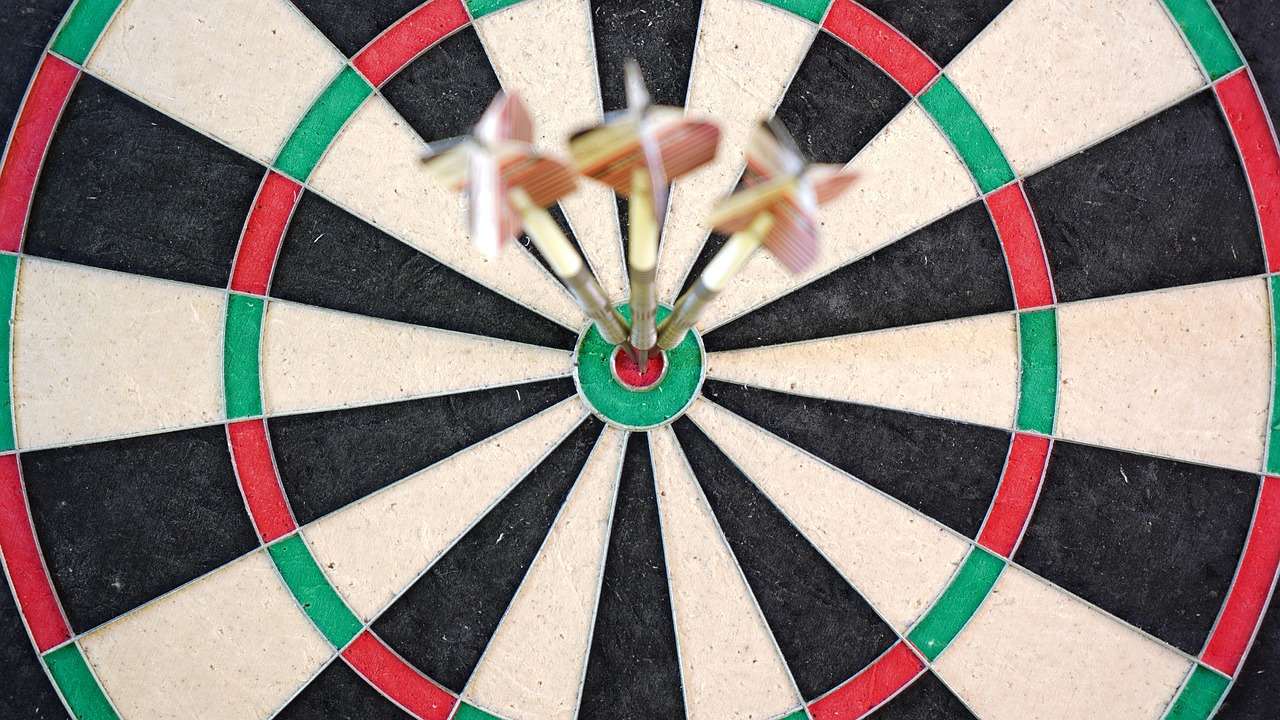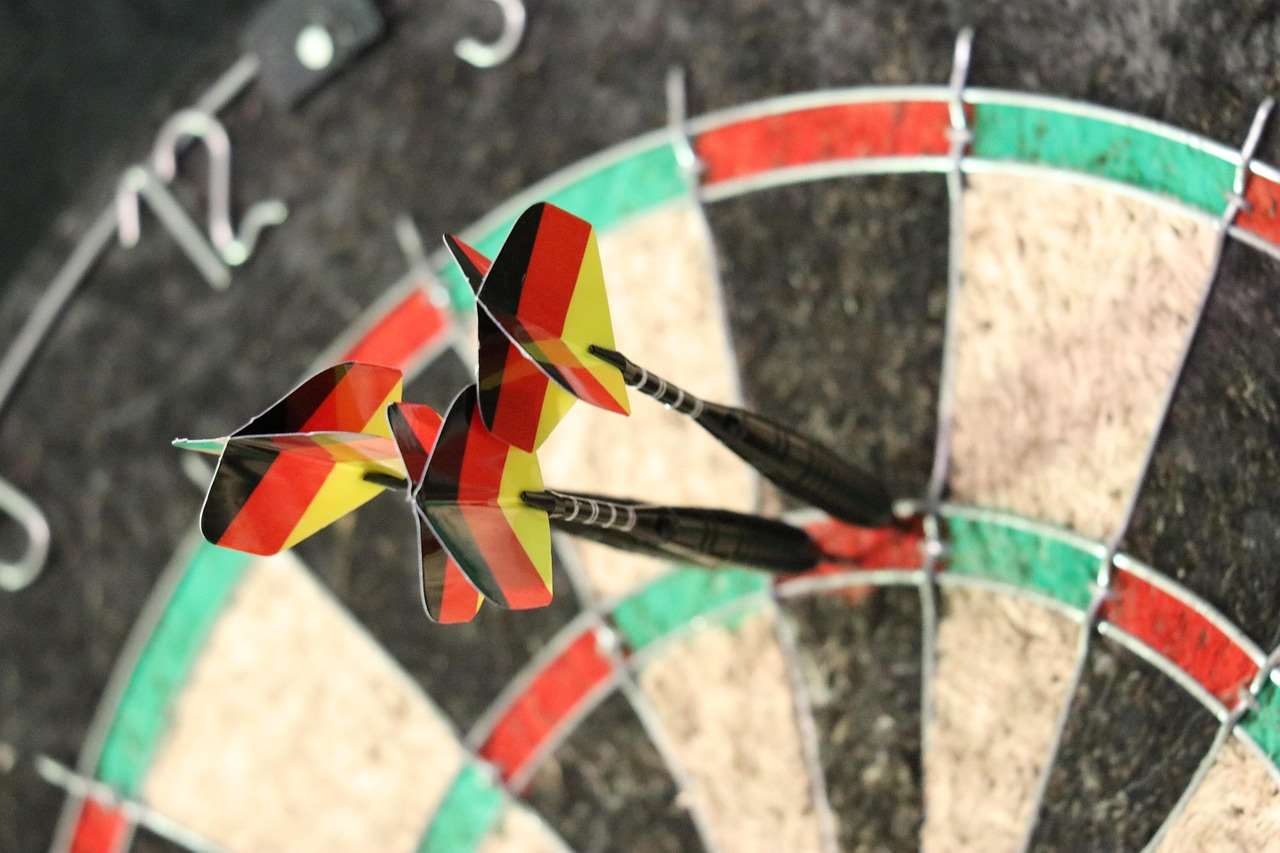Darts Etiquette Beyond Rules extends far beyond simply knowing the official regulations; it’s about fostering a respectful and enjoyable atmosphere for everyone involved. This article explores the unwritten rules and subtle nuances that contribute to good sportsmanship and camaraderie in the world of darts. We’ll delve into everything from pre-game preparations to post-match conduct, ensuring you’re not just a skilled player but also a respected member of the darts community.
⚠️ Still Using Pen & Paper (or a Chalkboard)?! ⚠️
Step into the future! The Dart Counter App handles all the scoring, suggests checkouts, and tracks your stats automatically. It's easier than you think!
Try the Smart Dart Counter App FREE!Ready for an upgrade? Click above!
Understanding Darts Etiquette Beyond Rules
While knowing the official rules of darts is essential, truly mastering the game involves understanding the unspoken code of conduct. Darts etiquette dictates how players should behave both on and off the oche, promoting fair play and a positive environment for all. It’s about showing respect for your opponents, your teammates, and the game itself. Following Darts Culture And Community Guide allows you to understand these nuances.
The Importance of Sportsmanship
Sportsmanship is the cornerstone of darts etiquette. It encompasses honesty, respect, and a gracious attitude in both victory and defeat. A true darts player accepts the outcome of a match with grace, acknowledging the skill of their opponent and refraining from making excuses or blaming external factors. Remember that darts is a game of skill and strategy, but it’s also a social activity that should be enjoyed by everyone.

Pre-Game Etiquette: Setting the Stage for Respect
Good darts etiquette begins even before the first dart is thrown. A little preparation and attention to detail can go a long way in creating a positive atmosphere.
- Arriving on Time: Punctuality shows respect for your opponents and the organizers of the match or tournament. Aim to arrive with ample time to warm up and prepare mentally.
- Proper Attire: While darts may not have a strict dress code everywhere, dressing neatly and appropriately demonstrates professionalism and respect for the occasion. Check with the specific league or tournament for any dress code requirements.
- Board Inspection: Before the match begins, take a moment to inspect the dartboard for any obvious defects or inconsistencies. This helps ensure a fair playing field for both players.
Warm-Up Etiquette
Warming up is a crucial part of preparing for a darts match, but it’s essential to do so in a way that doesn’t disrupt or distract other players. Avoid throwing darts while others are at the oche, and be mindful of your surroundings. Share the practice board when necessary, and be respectful of those who are trying to concentrate.

During the Game: Navigating the Oche with Grace
The oche is where the action happens, and it’s where darts etiquette is most visible. Here are some key considerations:
- Silence is Golden: When your opponent is throwing, maintain silence and avoid making any distracting movements. This allows them to focus on their throw without unnecessary distractions.
- Avoid Walking the Oche: Refrain from pacing back and forth or fidgeting while your opponent is at the oche. This can be disruptive and unsettling.
- Marking the Score: Ensure the score is accurately marked and clearly visible to both players. Double-check the scores regularly to avoid any confusion or disputes.
- Retrieving Darts: Collect your darts promptly after each throw, being mindful of your opponent’s space and concentration. Avoid reaching across the board while your opponent is still throwing.
Communicating Respectfully
Verbal communication during a darts match should be kept to a minimum and always be respectful. Avoid making derogatory comments about your opponent’s skill or performance, and refrain from engaging in trash talk that crosses the line into personal insults.
A simple “Good shot” or “Well played” can go a long way in fostering a positive atmosphere.

Post-Game Etiquette: Winning and Losing with Dignity
How you behave after a match is just as important as how you behave during it. Your post-game conduct reflects your character and sportsmanship.
- Gracious in Victory: If you win, avoid gloating or rubbing your victory in your opponent’s face. Offer a sincere handshake and acknowledge their effort. A simple “Well played, it was a good match” is sufficient.
- Dignified in Defeat: Losing is never easy, but it’s important to accept defeat with grace and dignity. Avoid making excuses or blaming external factors for your loss. Congratulate your opponent on their victory and wish them well in their next match. Consider exploring How To Start A Darts League for ways to improve your game.
- Handshake and Thank You: Always offer a handshake to your opponent after the match, regardless of the outcome. Thank them for the game and wish them well.
The Importance of Constructive Feedback
If you’re playing in a friendly game or practice session, offering constructive feedback to your opponent can be a valuable way to help them improve. However, be sure to offer your feedback in a respectful and supportive manner, avoiding any criticism that could be perceived as condescending or discouraging.

Specific Scenarios and How to Handle Them with Etiquette
Certain situations in darts require specific attention to darts etiquette beyond rules. Here are some examples:
- Disputes Over Scoring: If a dispute arises over the score, remain calm and polite. Consult with a neutral third party or the league official to resolve the issue fairly. Avoid getting into heated arguments or accusations.
- Equipment Malfunctions: If your equipment malfunctions during a match (e.g., a broken dart shaft), politely request a brief pause to address the issue. Avoid making excessive delays or using equipment malfunctions as an excuse for poor performance.
- Distracting Opponents: If you believe your opponent is intentionally distracting you, calmly address the issue with them directly or with the league official. Avoid retaliating or engaging in disruptive behavior.
- Unsportsmanlike Conduct: If you witness unsportsmanlike conduct from another player (e.g., cheating, harassment), report the incident to the league official or tournament organizer. Avoid taking matters into your own hands or engaging in vigilante justice.
Dealing with Hecklers
Heckling is generally frowned upon in darts, especially in competitive settings. If you encounter hecklers, try to ignore them and focus on your game. If the heckling becomes excessive or abusive, report the behavior to the league official or tournament organizer.

Promoting Positive Darts Culture
Ultimately, Darts Etiquette Beyond Rules is about fostering a positive and inclusive darts culture for everyone. By adhering to the principles of sportsmanship, respect, and fair play, we can create a welcoming environment where players of all skill levels can enjoy the game.
Mentoring New Players
Experienced players have a responsibility to mentor new players and teach them not only the rules of the game but also the importance of darts etiquette. Share your knowledge and experience with newcomers, and encourage them to embrace the values of sportsmanship and respect. Remember the guidelines in Recruiting Members Darts League Club.
Leading by Example
The best way to promote positive darts etiquette is to lead by example. Consistently demonstrate good sportsmanship, respect for your opponents, and a commitment to fair play. Your actions will speak louder than words and inspire others to follow suit. Consider also Promoting Local Darts through community involvement. These types of initiatives help keep local darts culture alive and active.
Conclusion
Mastering Darts Etiquette Beyond Rules is crucial for creating a positive and enjoyable experience for all darts players. It’s about showing respect, practicing good sportsmanship, and upholding the traditions of the game. By following these guidelines, you’ll not only become a better player but also a valued member of the darts community. Remember to be respectful, be gracious, and always strive to play the game in the right spirit. So, step up to the oche, embrace the etiquette, and let your darts fly with confidence and integrity. Learn more about building thriving local darts communities in our Building Local Darts League Club Guide. Take these principles and apply them to your next game, and watch how they transform the atmosphere and your own personal enjoyment of the sport.
Hi, I’m Dieter, and I created Dartcounter (Dartcounterapp.com). My motivation wasn’t being a darts expert – quite the opposite! When I first started playing, I loved the game but found keeping accurate scores and tracking stats difficult and distracting.
I figured I couldn’t be the only one struggling with this. So, I decided to build a solution: an easy-to-use application that everyone, no matter their experience level, could use to manage scoring effortlessly.
My goal for Dartcounter was simple: let the app handle the numbers – the scoring, the averages, the stats, even checkout suggestions – so players could focus purely on their throw and enjoying the game. It began as a way to solve my own beginner’s problem, and I’m thrilled it has grown into a helpful tool for the wider darts community.